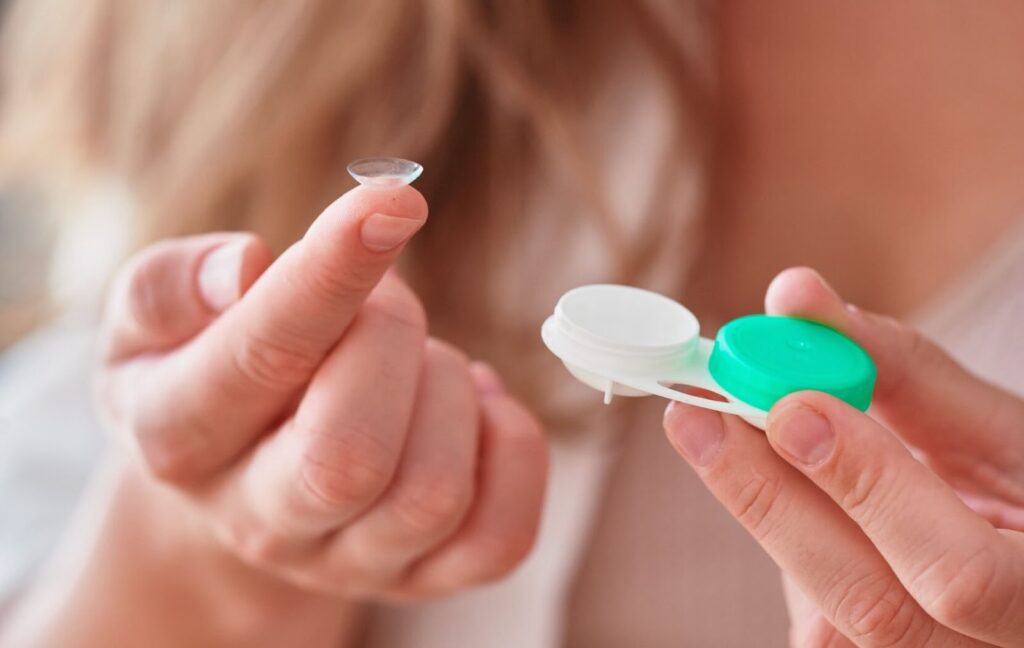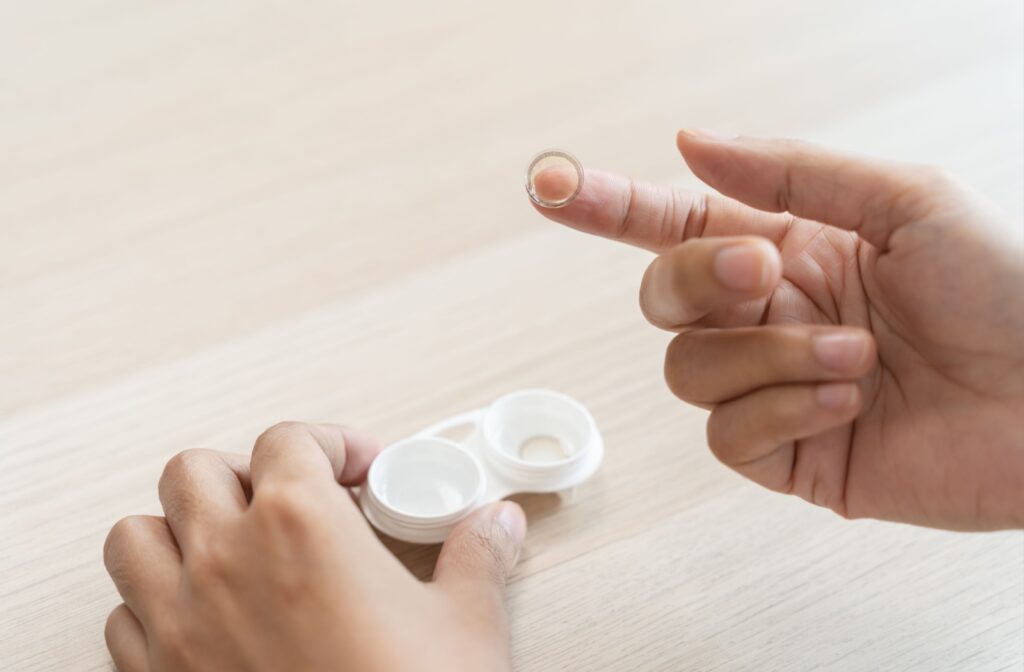Have you ever found an old box of contact lenses tucked away in a drawer and wondered, “Can I still use these?” Contact lenses are life-changing for many people, offering convenience that eyeglasses sometimes can’t match.
But, just like anything else with a shelf life, contact lenses do expire. Knowing when and why lenses expire can save you from unnecessary discomfort or even serious eye health issues.
What Does the Expiration Date on Contact Lenses Mean?
Yes, contact lenses have expiration dates—and for a good reason! The expiration date printed on your contact lens packaging isn’t just a suggestion; it’s there to inform you when the product is no longer guaranteed to be safe or effective.
Expiration dates typically refer to the sterility of the sealed environment inside your lens packaging. Contact lenses are packaged in a sterile solution that keeps them free from bacteria or contamination. Over time, this solution can become less effective, increasing the risk of bacteria or other harmful microorganisms affecting your lenses.
Where to Find the Expiration Date
The expiration date is usually printed on the contact lens box or blister packaging. It’s often labelled with “EXP” followed by a date in the format of month and year (e.g., 03/2025). It’s important to note that this expiration date assumes the packaging remains intact and unopened.
Once a package or blister is opened, the sealed environment is compromised, and you should follow the wear-and-care guidelines provided by your eye doctor.
Why Do Contact Lenses Expire?
Contact lenses expire for several key reasons that ensure your eyes stay healthy and irritation-free.
Sterility of the Packaging
Contact lenses are stored in a sterile solution, but sterility isn’t permanent. Over time, the preservatives in the liquid can degrade, making it easier for bacteria or fungi to thrive. Using lenses with deteriorated sterility increases your risk of serious eye infections.
Breakdown of Materials
Contact lenses are made from advanced materials like silicone hydrogel. While durable, these materials aren’t immune to wear and tear. After the expiration date, the lens material may start to degrade, affecting how it feels and performs in your eye.
Compliance with Safety Regulations
Manufacturers are required to assign expiration dates to assure customers that the product meets safety standards. Expiration dates help uphold accountability, prevent counterfeit products, and protect you from potential harm.
What Are the Risks of Using Expired Contact Lenses?
Using expired contact lenses, even once, can lead to several harmful consequences for your eyes. Here’s why you should always think twice before using an expired lens.
1. Increased Risk of Eye Infections
Expired lenses may harbor bacteria or fungal growth due to compromised sterility in the packaging. This can lead to infections like conjunctivitis (pink eye) or more severe conditions like keratitis, which can damage your cornea.
2. Reduced Comfort and Fit
The material of an expired contact lens can become brittle or warped, which may leave the lens feeling uncomfortable in your eye and disrupt its intended fit. Poorly fitting lenses can cause irritation, redness, or blurred vision.
3. Blurred or Distorted Vision
Expired lenses may lose their structural integrity, leading to small scratches or tears. These imperfections can cause distorted vision, making your lenses ineffective for correcting your eyesight.
4. Long-Term Eye Damage
In extreme cases, the combination of infection, irritation, and poor fit could lead to more severe, long-standing damage, such as scarring on the cornea or reduced visual clarity.
How to Keep Your Contact Lenses Stay in Top Condition

We hear you—life gets busy, and keeping track of every little thing can be hard. Fortunately, these tips will help you stay on top of your contact lens care and ensure you’re always using safe, effective lenses.
1. Always Check the Packaging
Before opening any new contact lens packaging, double-check the expiration date on the box or blister. If it has expired, dispose of the lenses immediately.
2. Update Your Prescription
Contact lens prescriptions typically expire after one or two years. Regular eye exams ensure your eyes are healthy, and by updating your contacts prescription you ensure you can keep new contacts on hand so you won’t be tempted to reach for an expired set in a pinch.
3. Store Contact Lenses Safely
If you buy contact lenses in bulk, make sure they’re stored properly in a cool, dry place away from direct sunlight. Heat or moisture can compromise the packaging, even if the lenses haven’t reached their expiration date.
4. Follow Your Optometrist’s Recommendations
Your eye doctor is your best resource for safe contact lens care. Follow their wear schedule, cleaning instructions, and recommendations to avoid unnecessary risks.
Keep Your Vision Clear
Contact lenses are a great solution for people with vision correction needs. But to fully experience their benefits, you must ensure they’re always safe and effective. Checking the expiration date is a quick and easy way to protect your eye health and avoid unnecessary discomfort.
At Vision Veritas Eyecare, we offer personalized eye care to meet your vision needs. Book your next eye exam with us today.





